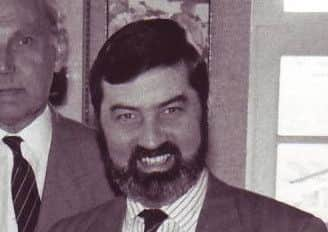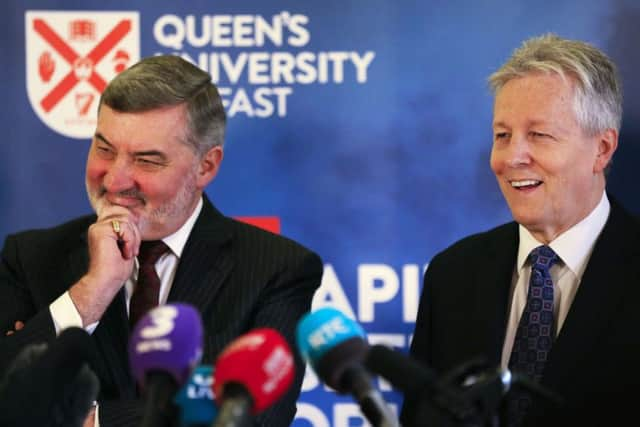1998 deal: John Alderdice '“ '˜We shared the doubt that there would be agreement'
and live on Freeview channel 276
This week people from some of the world’s most intractable conflicts in Latin America, the Middle East, the Balkans and South Africa will gather in Belfast to explore the challenges we share in implementing peace agreements.
Meantime many Northern Ireland people take peace and the Good Friday Agreement for granted, largely forgetting the awfulness of the years of violence and what we had to do to find a way to disagree without killing each other.
Advertisement
Hide AdAdvertisement
Hide AdBy 1998, I had been the Leader of the Alliance Party for eleven years and was deeply aware of the years of patient, steadfast commitment, of a relatively small number of politicians, civil servants and community leaders from across ‘the divide’ to negotiating an end to our conflict.


In the later years we had been in Talks on Mondays, Tuesdays and Wednesdays, week after week, month after month, and indeed year after year, but even in the run-up to Easter 1998 there was still no certainty that an agreement was possible.
I remember saying at the Talks table that one of the things we shared was the criticism from the press and public outside that we were all just part of a charade, with few believing that anything would come of the Talks.
While the media description was often markedly different from what was actually going on in the Talks, the doubt that we would ever conclude an agreement was something we did share, inside and outside Castle Buildings. There were some memorable occasions when emotions ran high around the table, but for most of the time the process was as riveting as ‘watching paint dry’.
Advertisement
Hide AdAdvertisement
Hide AdIt could have gone on endlessly, but late in 1997 the Chairman of the Talks, Senator George Mitchell, who had shown remarkable patience and a nuanced understanding of all our positions, advised us that the following Easter he would have to take his leave of us, because he needed to spend more time with his young wife and son.


We all knew that if George went, the chances of a good outcome were negligible. Who else would give us the time and commitment?
How would we find someone like him in whom we could all have confidence? That human relationship with him, and the appreciation of his relationship with his family, somehow created a different dynamic and Good Friday 1998 became, not an imposed deadline, but the limit of our opportunity.
The most significant breakthrough in our process had been the recognition that our problems were not primarily a disagreement about the border, nor the conflict of allegiances, but a reflection of disturbed historic relationships between Protestant Unionists and Catholic Nationalists in the North; between the people of the island, North and South; and between Britain and Ireland.
Advertisement
Hide AdAdvertisement
Hide AdOur three-stranded process was constructed to address those three sets of relationships, and as long as we focussed on them progress was possible.


Twenty years on the reins of politics are in the hands of the next generation and much has improved.
Parents no longer fear that their children going out for a night of weekend fun may be blown up in a pub bombing; our towns and cities are welcoming places for tourists and business people from across the world bringing jobs and prosperity; women now hold many of the senior positions in public life; and religious discrimination is a thing of the past.
However I fear that the key lessons, learnt from the very painful experience of the Troubles, have been forgotten by the leaders of the Northern Ireland parties and by the British and Irish governments.
Advertisement
Hide AdAdvertisement
Hide AdI hope that this week, as we reflect with others on the challenges of implementing peace agreements, our political leaders will recapture those understandings.


If they do, we will not only have something profoundly important to give to our children and grandchildren, but to a wider world that has frightening resonances with 1914, 1939 and 1968.
Professor, the Lord Alderdice FRCPsych - Alliance Leader (1987 – 1998), Speaker of the Northern Ireland Assembly (1998 – 2004), Member of the Independent Monitoring Commission (2004 – 2011) Chairman of the Liberal Democrats in the House of Lords (2010 – 2014), Director of the Centre for the Resolution of Intractable Conflict, Harris Manchester College, University of Oxford since 2013
• Lord Alderdice is the former leader of the Alliance Party